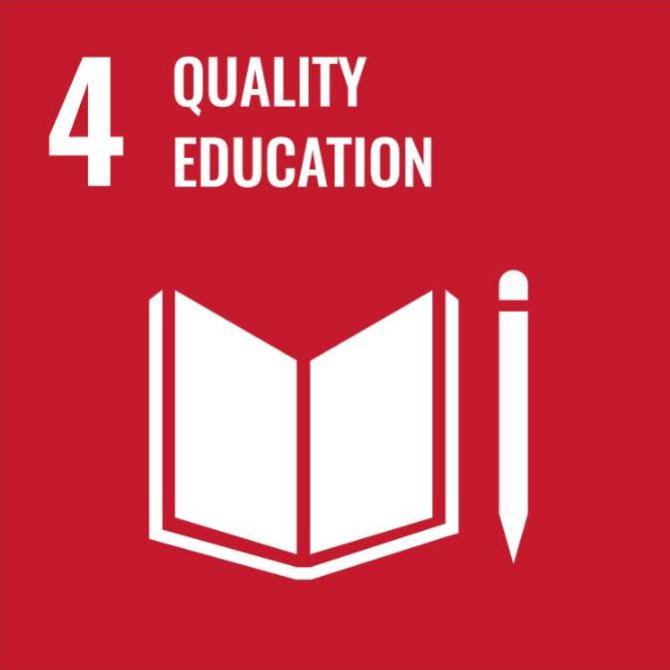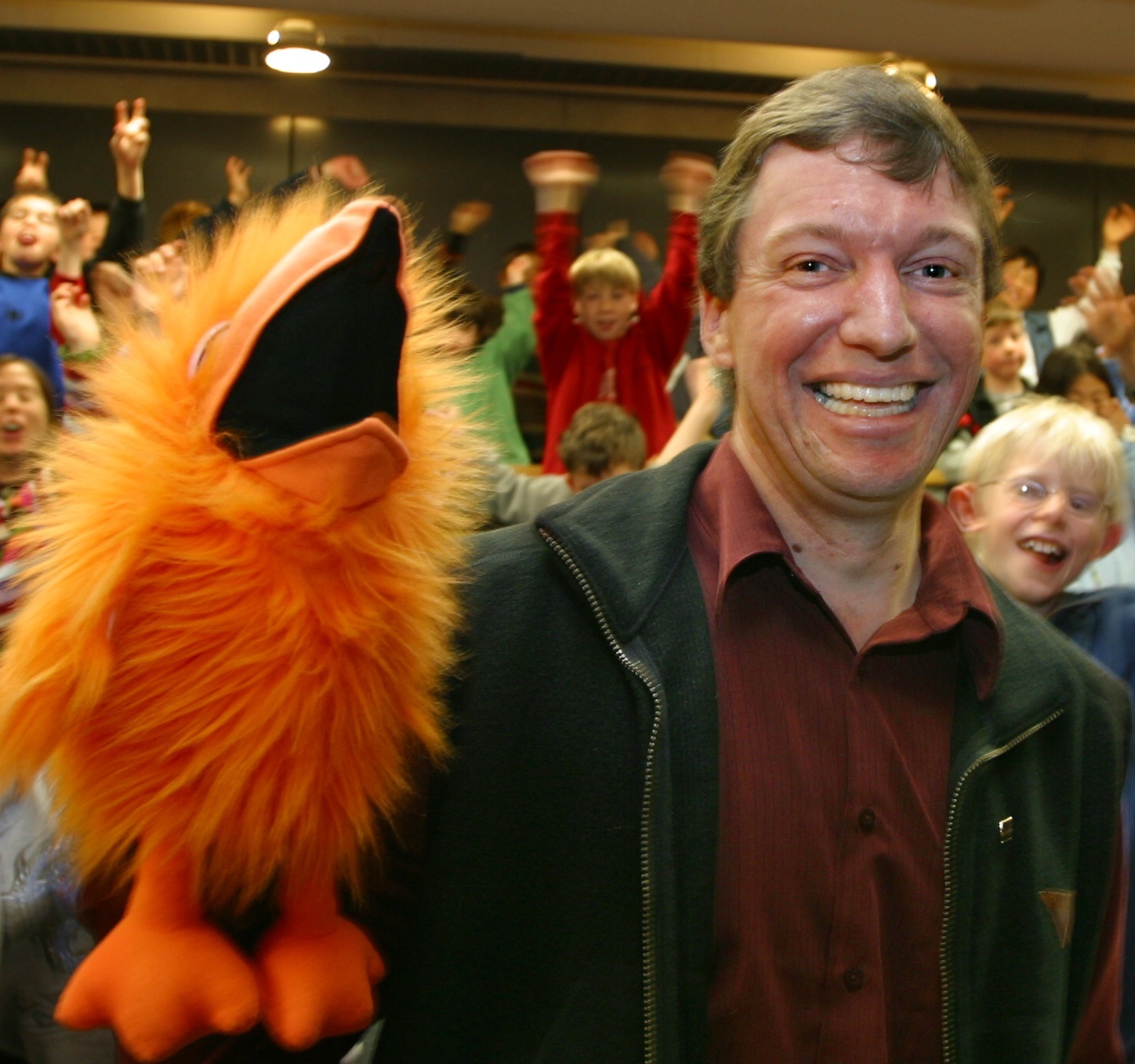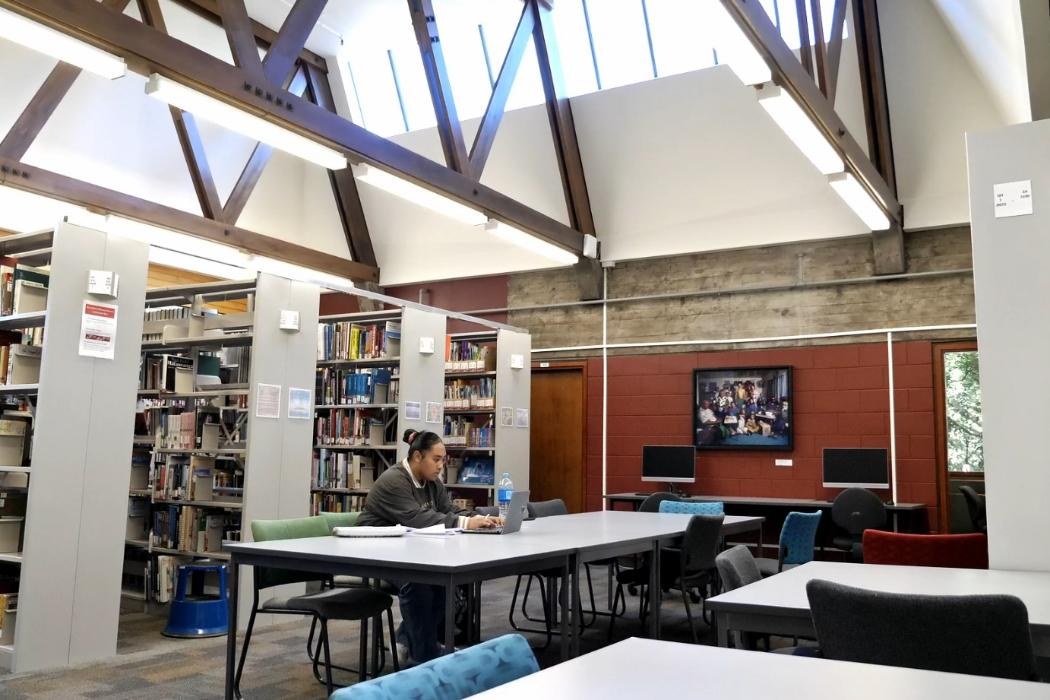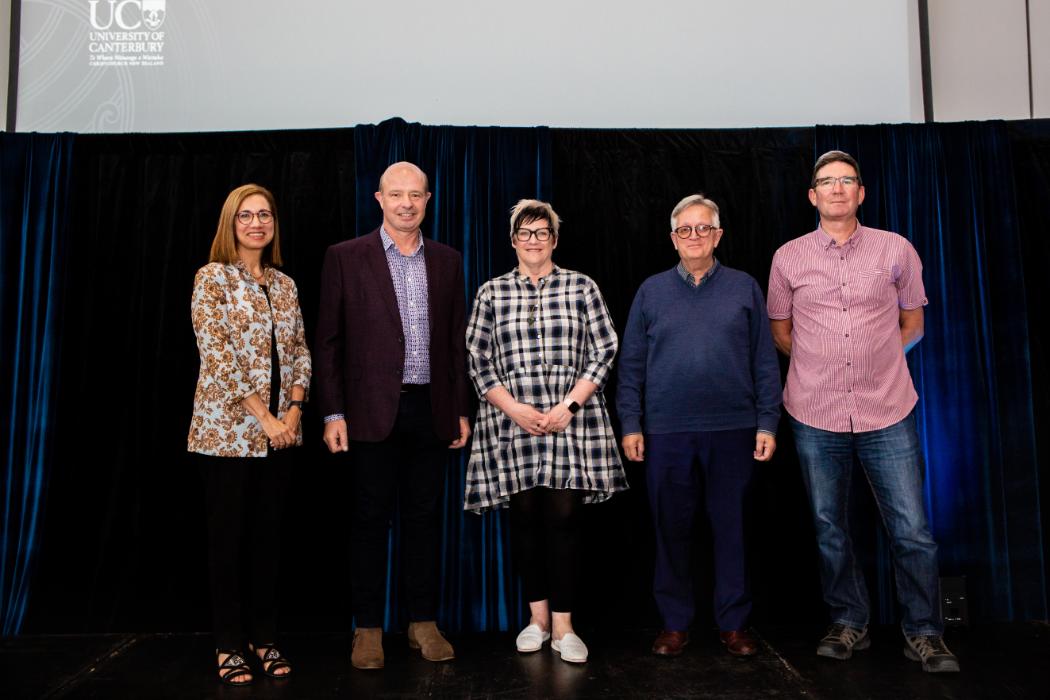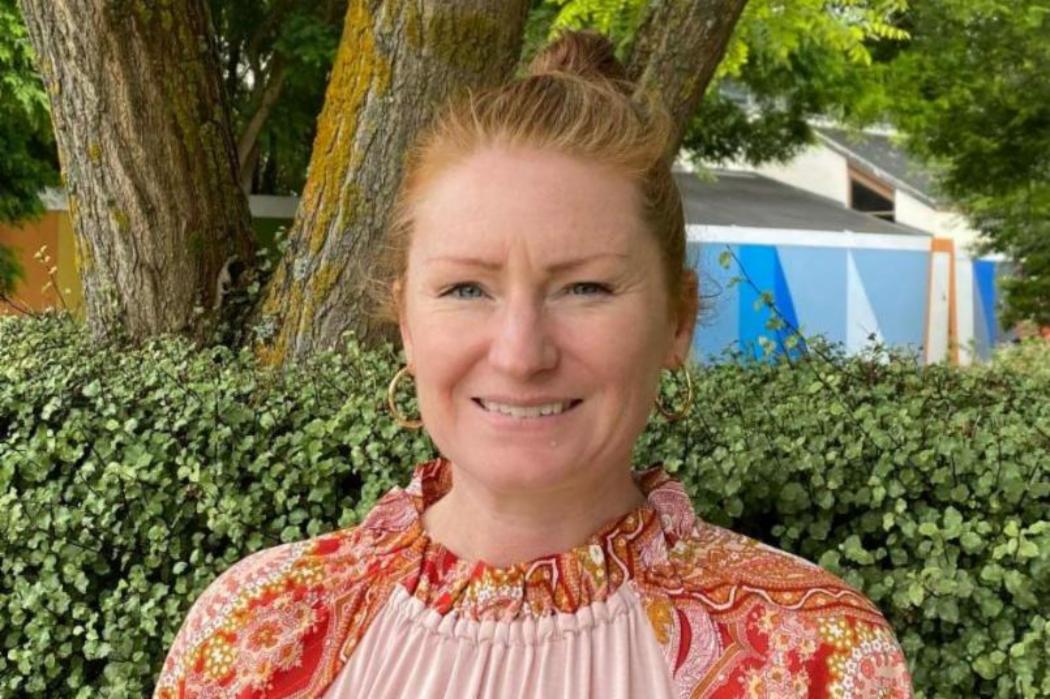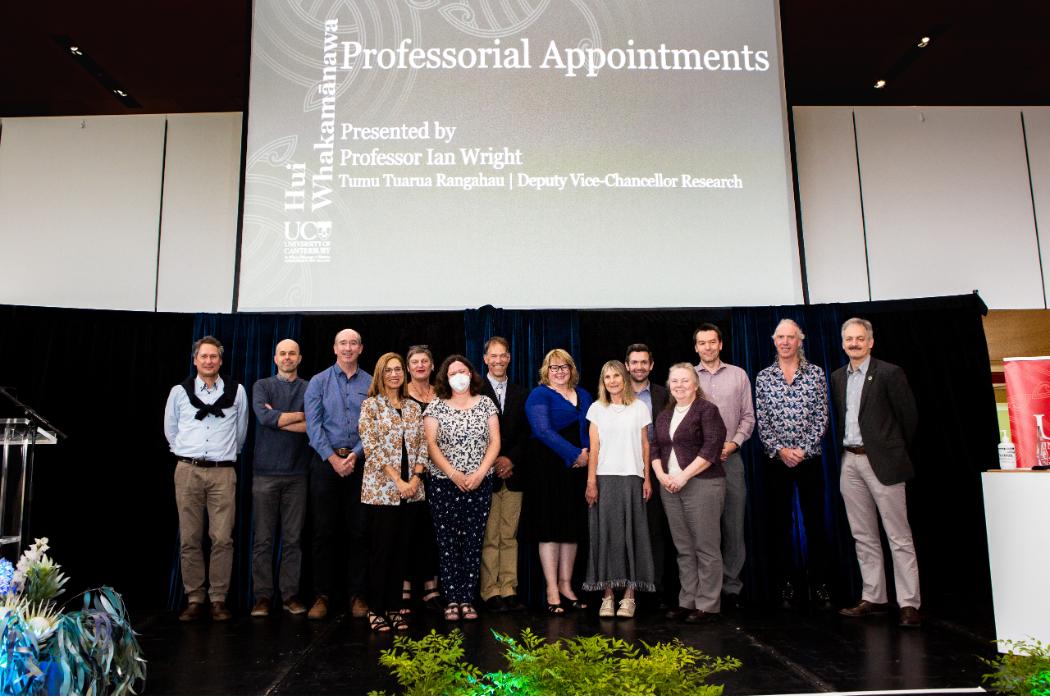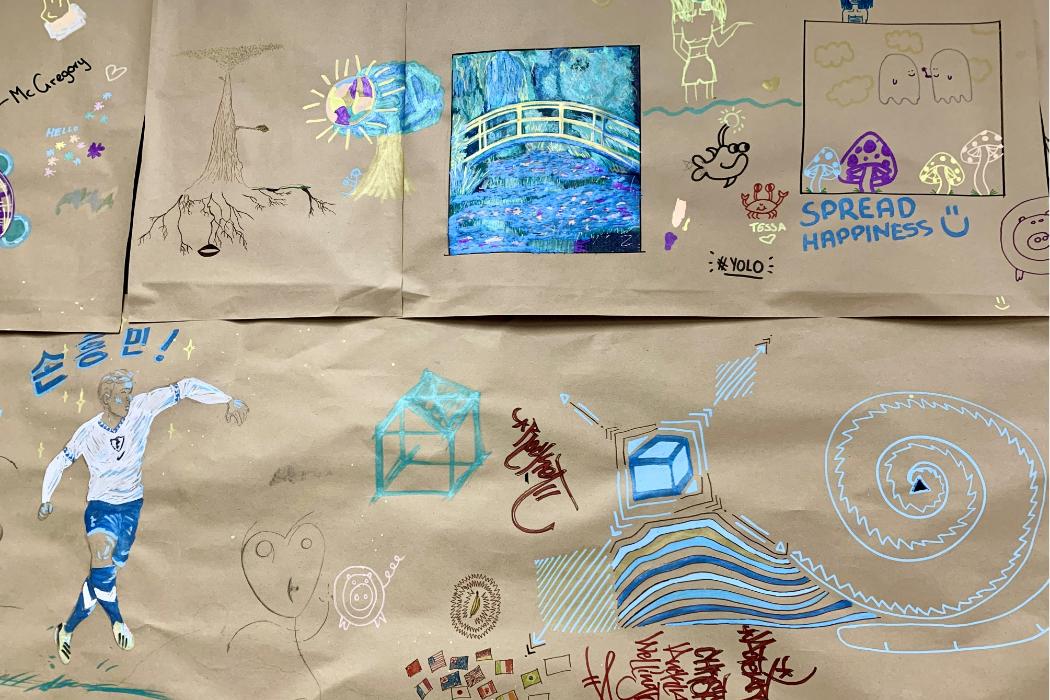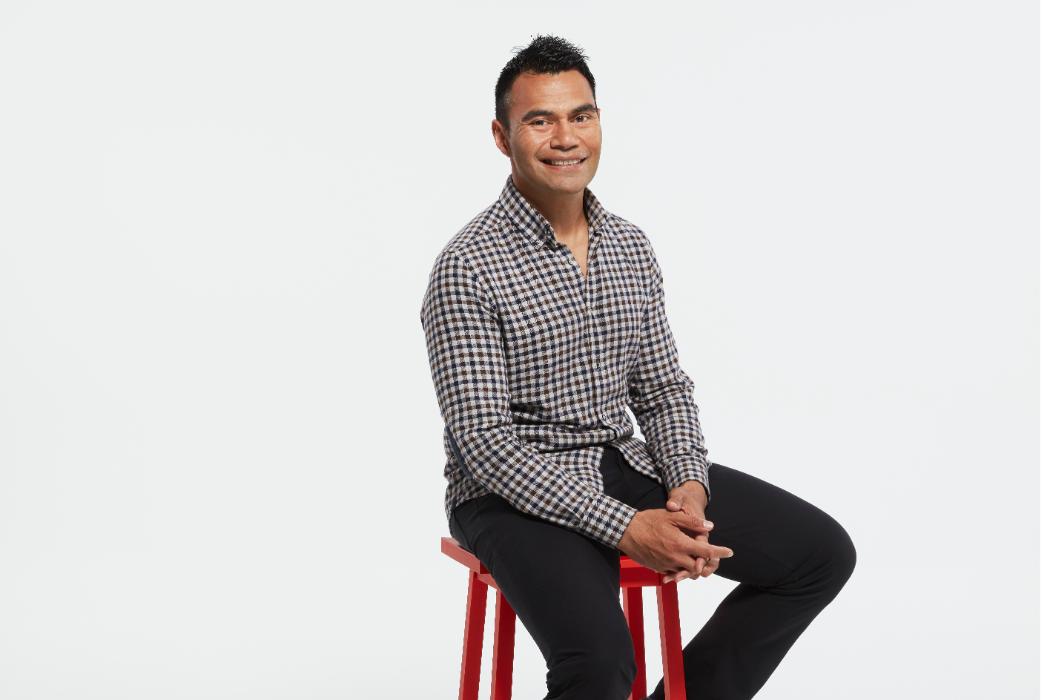University of Canterbury Kaihautū Taunaki Kaupapa | Director – Projects and Innovation Jeanine Tamati-Elliffe (Kāi Tahu, Kāti Māmoe, Te Atiawa) says Takere, which was launched as a pilot programme in January 2021 with funding from the Tertiary Education Commission (TEC), offers a “scaffolded approach to learning”.
“This kaupapa is about preparing the students academically for tertiary study, while providing them with opportunities to navigate university systems and create relationships with the UC whānau before they start university. Takere provides them with tools to ensure their success here at UC as Māori and Pacific students,” she says.
Takere student Wairaamia Taratoa-Bannister, 18, (Kāti Māmoe, Kāi Tahu, Ngāti Raukawa) is from Ōnuku on Horomaka Banks Peninsula and learned in a kura kaupapa Māori environment before moving to Cashmere High School and becoming head girl last year. “Being in a group with Pacific students and being exposed to their world has been really good for me and pushed me out of my comfort zone. I’ve really enjoyed it,” she says.
Wairaamia, who featured in the University of Canterbury’s Believe U Can campaign last year, says the Takere activities and getting to meet lecturers has made her feel “really comfortable” with the courses she has chosen at UC.
“Living in the hall with 49 other students like me has given me a jumpstart and I feel really confident to start uni. It’s an opportunity to build connections before you start studying and have familiar faces around you.”
Eseta-Claire Navunisaravi, 18, moved to Christchurch from Fiji two years ago. She says the Takere group has become close in a just a few weeks. “To be with people who are like me and know who I am and are accepting of who I am is a really big highlight for me. It’s also been a big help with my time management and knowing what services are available on campus. It’s a good foundation.”
Eseta-Claire plans to study political science and wants to be involved in future policymaking.
Meshach Faafoe, 18, who is Samoan, says the support he’s gained from Takere has made a big difference. “Being together with other Māori and Pacific students, I’ve really learned a lot from that. We’ve been given a lot of support adapting to a new environment.”
The Haeata Community Campus graduate, who will study Social Work at UC, is the first in his immediate family to go to university and Tamati-Elliffe says many of the others in the group are “first in whānau” students.
“It’s really important they get the best foundation for learning that we can provide. As well as getting a headstart academically, our approach is holistic, using our cultural foundations as a platform to deliver workshops on budgeting, health and wellbeing, goal setting for success and strengthening interpersonal skills.”
University of Canterbury Deputy Vice-Chancellor Academic Catherine Moran says the Takere programme is part of the University’s commitment to being more inclusive.
"We've seen from last year’s Takere cohort how the programme creates a sense of community, builds on cultural and community connections, and provides the students with opportunities to connect with Māori and Pacific academics and other staff on campus."
The scholarship has been extended this year to include more students, a longer live-in residential transition academy programme, and additional accommodation support throughout the academic year for those opting to stay in UC’s newest accommodation hall, Tupuānuku.
Takere students receive ongoing support throughout their first year of study from kaiurungi (advisors) and kaitaki (student mentors). They will also have access to tutors and other opportunities such as participating in the UC Māori leadership programme, Paihere, and the Pasifika Mentoring Programme.
Based on a narrative of navigation and exploration, the name Takere acknowledges the whakataukī “E kore e ngaro, he takere waka nui – we will never be lost; we are the hull of a great canoe”. Students are given provisions to store in the hull (takere) of their waka (voyaging vessel), ensuring they are better prepared for their academic journeys.


